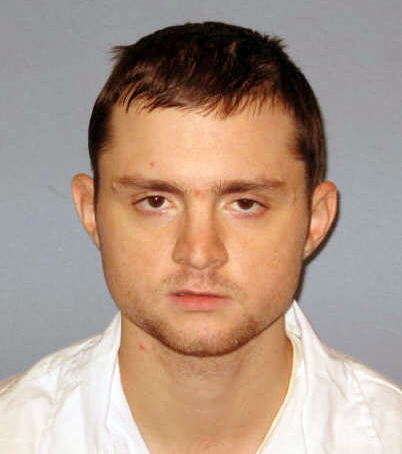BREAKING: Lackey executed for 2005 murder of Athens man
Published 6:45 pm Thursday, July 25, 2013

- Andrew Lackey
Mary Barksdale felt a connection to the Madison man who was put to death tonight at Holman prison in Atmore.
Like Andrew Lackey, her son, Farron, was convicted of murder in Limestone County.
Lackey, who was sentenced to death by lethal injection for the 2005 fatal beating, stabbing and shooting of 80-year-old Charles Newman of Athens, died shortly after 6 tonight at Holman prison in Atmore.
Newman, a paratrooper with the 101st Airborne Division during World War II, participated in the D-Day invasion at Normandy, France, in 1944. He was a retired building contractor. Newman’s grandson and Lackey were friends, and Lackey believed the grandfather had a safe with money in it.
Farron, who pleaded guilty to murdering two Athens police officers in 2004, avoided the death penalty but died several days after sentencing in 2007. He had been found comatose in his prison cell and died at a hospital from a combination of his anti-psychotic medication and the extreme heat in the prison that summer, his mother said.
Mary recently told The News Courier, while discussing the status of mental health care in the state, she and Lackey had been corresponding since her son died six years ago.
Lackey, 29, and his loved ones said their goodbyes this week at the prison.
He was visited by his mother, father and other relatives, Department of Corrections spokesman Brian Corbett told the Associated Press. He had a number of books, which he gave to his mother, Corbett said. Lackey’s last meal came from the prison kitchen and included grilled cheese and bologna sandwiches with French fries, he said.
After initially appealing his death sentence, Lackey decided last year to halt all appeals. He fired his attorneys and asked for an execution date. The state complied after Lackey wrote letters to the Alabama Supreme Court and the Alabama Attorney General’s Office saying he did not wish to pursue further appeals and wanted an execution date.
The Equal Justice Initiative in Montgomery opposed Lackey’s execution, saying he was mentally ill and needed evaluation. Both the trial court and the Alabama Court of Criminal Appeals ruled the execution could proceed.


